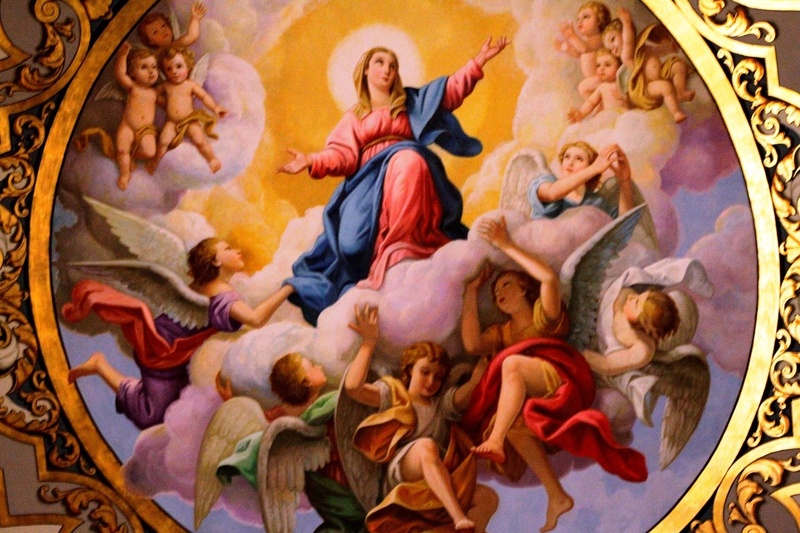The Feast of The Assumption Of Mary
On 15 August each year, the Catholic Church celebrates the Feast of the Assumption of Mary. It is difficult to put into plain and simple words what this feast day is all about as it is somewhat of a complex concept.

Like any of the beliefs Catholics hold about Mary, the Assumption has less to do with Mary and more to do with God and the work of salvation. Mary is regarded as pure and without sin—even without Original Sin. Mary’s sinlessness is proclaimed by the Catholic belief that Mary was immaculately conceived; that is, Mary is the Immaculate Conception. This is so not because of anything that Mary did; it is wholly the saving work of God (in Latin: “opus dei”). Being sinless, Mary was not subject to death—again a gift God graciously bestowed upon Mary. Therefore, Mary was assumed into heaven by the grace of God who spared her from death. Of course, in one sense Mary merited God’s gifts because she cooperated with God throughout her life. However, the point here is that none of us merit our salvation as it is all God’s doing so long as we are open to receiving God’s grace by entering into a faith relationship with Jesus the Christ.
This Marian Feast is also a lesson for us in what awaits us who are believers and followers of Christ. For those who believe, salvation is the process of being brought into ever closer relationship with Jesus who is for us the means of being draw to fullness of life. The Letter to the Ephesians states, “That according to the riches of God’s glory, Christ may grant you to be strengthened with power through his Spirit in your inner being, so that Christ may dwell in your hearts through faith.” The phrase “the riches of God’s glory” refers to God’s gifts (“riches”) to those who believe. Mary received God’s riches in abundance and in turn Luke’s gospel notes that “Mary treasured all these things, pondering them in her heart.” Mary’s heart is filled with faith.
For us the significance of the Feast of the Assumption of Mary is that, allowing “Christ to dwell in our hearts through faith”, we too will be granted eternal life. The Letter to the Ephesians also calls us to be “grounded in love,” so that we “may have strength to comprehend with all the saints what is the breadth and length and height and depth, and to know the love of Christ that surpasses knowledge, that you may be filled with all the fullness of God.” Indeed Mary is filled with the fullness of God; let us follow her example so that we may follow her destiny.
Angelo Gattone - Mission Coordinator